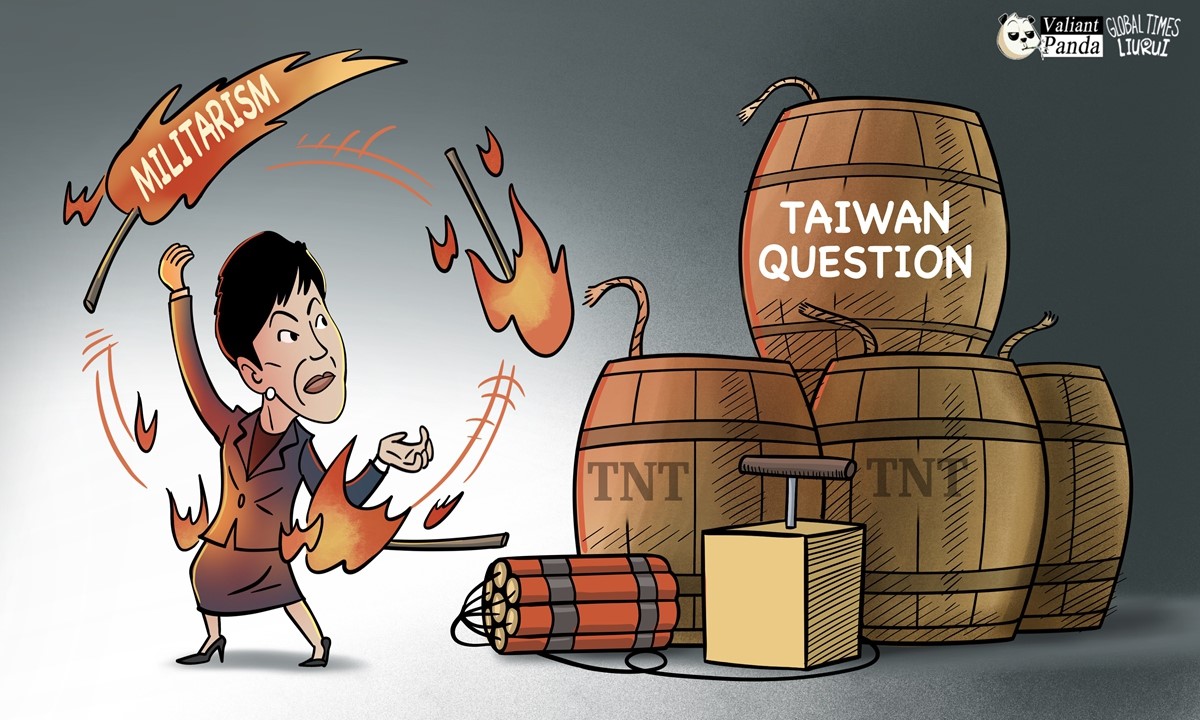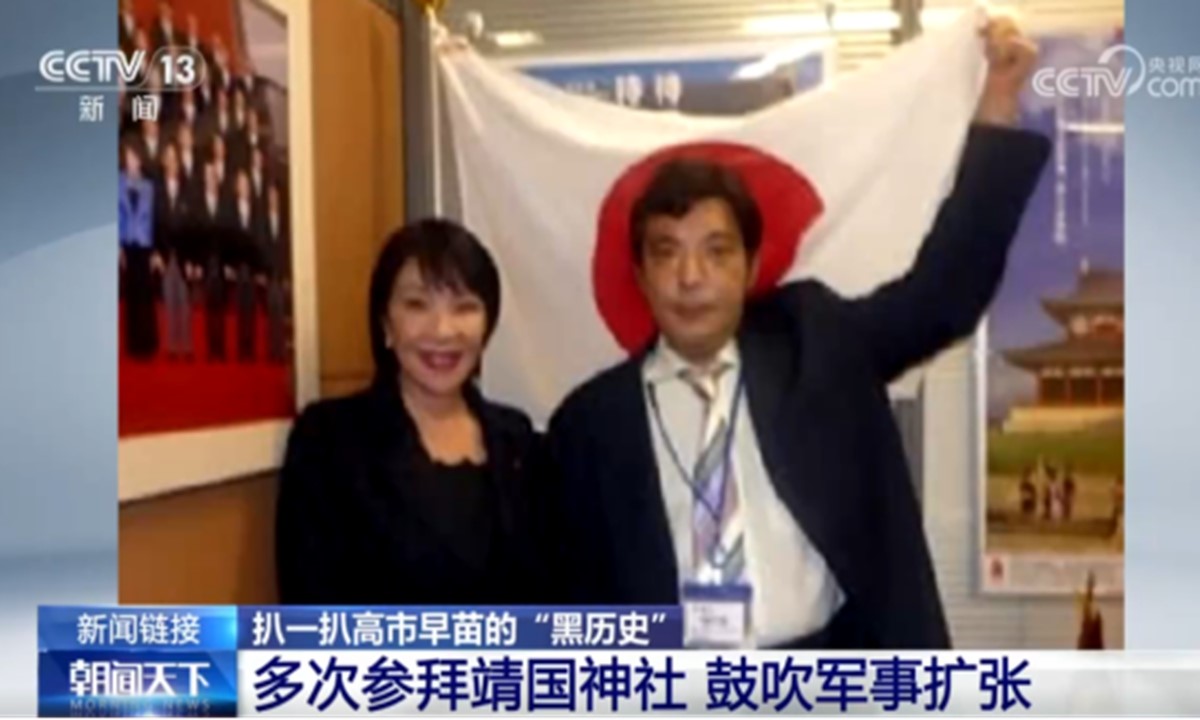Japan’s new PM drives tension in our region
Written by: Nick G. on 25 November 2025
Less than a month after being sworn in as Japan’s new Prime Minister, Sanae Takaichi has ratcheted up regional tensions by declaring that any Chinese attempt at reunification with Taiwan Province would be a "survival-threatening situation" for Japan, implying that Japan would need to intervene militarily on the side of Taiwan.
Given Japan’s prominence as a member of the Quadrilateral Security Dialogue (the Quad), alongside India, Australia and the United States, the warning by former Australian ambassador to Japan, John Menadue, that “continuing on her current path would be a dangerous gamble with the peace and prosperity of the entire region” must be taken seriously.
Takaichi has matched her words with a provocative decision to deploy Type 03 Chu-SAM missiles on Yonaguni Island, just 110 km from Taiwan.
Who is Takaichi?
She was born to a petty-bourgeois family, was university-educated, and embraced far-right Japanese nationalist causes. She entered politics and has held ministerial positions under several Prime Ministers, most notably Shinzo Abe. She supported Abe’s anti-China policies and his attempts to rewrite the so-called pacifist constitution adopted by Japan after its defeat in WW2.
As a supporter of the Japanese far-right, and as a then junior lawmaker, she endorsed a book about Hitler's electoral campaign tactics and in 2014 was photographed with Kazunari Yamada who was then the leader of the fringe National Socialist Japanese Workers Party (NSJAP), whose insignia is a mixture of a swastika and a Celtic cross.
A photo of Takaichi alongside neo-Nazi politician Kazunari Yamada in 2014
She was a member of, and retains ties to, far-right organisation Nippon Kaigi which believes that "Japan should be applauded for liberating much of East Asia from Western colonial powers; that the 1946–1948 Tokyo War Crimes tribunals were illegitimate; and that killings by Imperial Japanese troops during the 1937 Nanjing Massacre were exaggerated or fabricated".
Despite her gender, and being Japan’s first female Prime Minister and first female President of the ruling Liberal Democratic Party, Takaichi has taken conservative positions on social issues, such as opposition to same-sex marriage, to the recognition of separate surnames for spouses, and to female succession to the Japanese throne. She has criticised the Kono Statement, a statement released by Chief Cabinet Secretary Yōhei Kōno on August 4, 1993, after the conclusion of the government study that found that the Japanese Imperial Army had forced women, known as comfort women, to work in military-run brothels during World War II.
She has also continued the provocation of visiting the Yakasuni Crime where war criminals from WW2 are honoured. In January 2013, she said that "Japan should reconsider past apologies made for its wartime actions and expand its regional presence," and suggested that "Japan's leaders should pay annual visits to the Yasukuni Shrine."
Condemnation grows
On Wednesday November 19, protesters gathered in Kyoto to protest Takaichi’s dangerous call for military intervention in the event of a “Taiwan contingency”, and about a thousand rallied outside the PM’s office in Tokyo. Protesters said they joined the rally to prevent a situation that could incite war. Some emphasized Japan's position as a defeated nation in World War II, while others warned that Takaichi's comments not only threaten China-Japan relations but also the peace and stability of the entire East Asia region.
Japan's main opposition Constitutional Democratic Party of Japan (CDPJ) leader Yoshihiko Noda said on Sunday that that in light of the deterioration in Japan-China relations following Takaichi's Diet statement on a potential Taiwan contingency, the prime minister should work to improve the relationship.
Protests were also held on the island targeted for missile installations.
Condemnation of Takaichi’s remarks have also come from people in Vietnam, Malaysia, Myanmar and Korea.
Comrade Xiang Guanqi, Representative of the Chinese Communist Party (Marxist-Leninist-Maoist), denounced Takaichi’s comments for having “formally reneged on and tore up the surrender treaty signed by Japan when it announced its surrender in 1945.”
“History has repeatedly proven that the policy of repaying evil with kindness towards the reactionary forces and the reactionary government of Japan was nothing more than a well-intentioned but unrealistic and erroneous policy, and now it can be fundamentally and thoroughly corrected,” he said.
Sanae Takaichi’s elevation to the Prime Ministership of Japan threatens to tie Australia further into US imperialist plans for war against China. A revived Japanese militarism has been demanded by Japanese capitalists because without it, the international expansion of Japanese capital cannot be securely carried out.
The Australian people want regional peace, and do not want to see a militaristic and expansionist Japan any more than they want to see an expansionist and militaristic China.
There is no good imperialism. All people are entitled to live in peace and to engage with other countries on the basis of independence and sovereignty.
Print Version - new window Email article
-----
Go back
Independence from Imperialism
People's Rights & Liberties
Community and Environment
Marxism Today
International
Articles
| Board of Peace: an “upscale golf club” with select membership and hidden agendas |
| Rojava must be saved! Defend Rojava! |
| Greenland: Misusing “intelligence” to justify aggression |
| Statement on Iran |
| ICOR: US imperialism blocks Venezuela and aims for a coup d'état – international solidarity is needed |
| The US and Venezuela, 2025: moves to reassert the Monroe Doctrine |
| The struggle for mastery, and the uses and abuses of power: AI data-centres in outer space, part 2 |
| China winning the economic war with USA |
| Palestinian people's struggle not forgotten |
| Pegasus: US and Israel strengthen connections |
| Japan’s new PM drives tension in our region |
| Indian Maoists reject capitulation and surrender |
| Away with the Yankee presence in the waters of the Caribbean |
| Stop the militarisation of Space |
| The construction of a new Syria |
| US, Israel and Australia: the Indo-Pacific Strategy |
| Statement on the Massacres Committed by the Rapid Support Forces Militias in Bara and El-Fasher |
| US imperialism’s back yard blues |
| Venezuela: Resist Trump’s gangster tactics |
| DFLP to Hold Video Conference on Gaza |
-----


